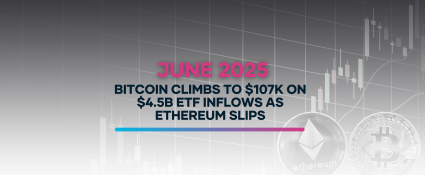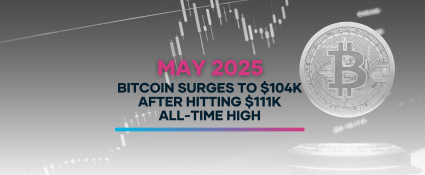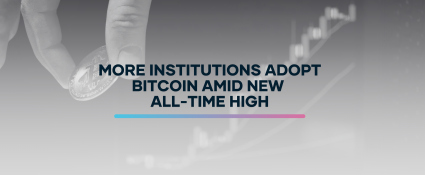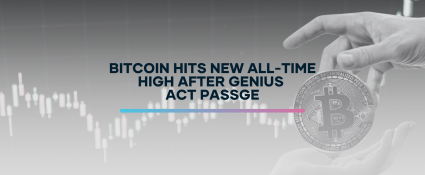Bitcoin Price: US$ 20,574.00 (+8.45 %)
Ethereum Price: US$ 1,128.53 (+13.41 %)
What decentralization? Solend approves whale wallet takeover to avoid DeFi implosion
- On Sunday, the decentralized finance (DeFi) sector came under scrutiny again after DeFi protocol Solend put together a spur-of-the-moment governance proposal related to one of the whale wallets at risk of liquidation.
- The proposal, dubbed “SLND1 : Mitigate Risk From Whale,” was abruptly launched on Sunday without announcement and the vote closed with a 97% approval rating. The scandal comes on the heels of last week’s sudden layoffs from Coinbase and BlockFi, and the liquidation debacle of Three Arrows Capital. Adding to the melee of unexpected volatility and market sell-offs, the spur-of-the-moment alterations of a supposed decentralized autonomous organization, or DAO, show that crypto is not as “decentralized” as its users may have thought.
- Details of the proposal include the whale’s wallet address and deeper information in regard to why this account was causing issues for Solend. Part of the main issue is the large account is facing liquidation which would put a strain on Solend and its users.
- According to the proposal, “If SOL drops to $22.30, the whale’s account becomes liquidatable for up to 20% of their borrows ($21M).” The aim of the proposal is to take control of the whale’s account and conduct the liquidation through an over-the-counter (OTC) transaction.
- Immediate kickback from Twitter ensued as usual. Arguments include the damage this move could cause to the overall image of DeFi. Taking control of one of Solend’s wallets means the fundamental principles of DeFi fall into question. The move also leaves a stain on Solend’s ability to manage its debt.
El Salvador president addresses bear market concerns with Bitcoin hopium
- El Salvador introduced Bitcoin (BTC) as legal tender on September 7, 2021, when its market price was around $50,000. Ever since, Bukele’s government made significant returns on their initial BTC investments as Bitcoin rallied to its all-time high of $69,000, which was redirected to the country’s various infrastructure development initiatives.
- However, as tensions rise amid falling BTC prices, Bukele decided to share advice for fellow Bitcoin investors that may be concerned about the prolonged bear market.
- Nayib Bukele, the president who helped Bitcoin (BTC) gain legal tender status in El Salvador, addressed the rising concerns of investors as BTC began trading for under $20,000 for the first time in 18 months.
- In his tweet, Bukele advised fellow investors to “stop looking at the graph and enjoy life.” He reassured investors about an inevitable comeback, stating that:
- “If you invested in #BTC your investment is safe and its value will immensely grow after the bear market. Patience is the key.”
- The advice received mixed reactions from the community as many pointed out the fact that El Salvador procured most of its BTC at a much higher price than the current market value. While critics expect BTC and other cryptocurrencies to continue on the downward trend, on-chain analytics signal the oncoming of Bitcoin’s reversal back to its former glory.
- Some of the popular suggestions to Bukele from the crypto community amid the bear market include launching the Bitcoin Bonds.
BIS to launch market intelligence platform amid stablecoin, DeFi collapse
- The Bank for International Settlements (BIS) Innovation Hub announced the launch of a new set of projects targeting various aspects of traditional and crypto payments — including a cryptocurrency market intelligence platform and security for retail central bank digital currency (CBDC).
- BIS’s cryptocurrency market intelligence platform will be launched under the Eurosystem Centre initiative, which aims to provide vetted data about crypto projects. One of the key drivers for the project’s commencement is the collapse of numerous stablecoins projects and decentralized finance (DeFi) lending platforms such as Terra and USDD. As explained in the official announcement:
- “The project’s goal is to create an open-source market intelligence platform to shed light on market capitalisations, economic activity, and risks to financial stability.”
- The move goes against the norm of relying on self-reported information by unregulated firms when it comes to data on asset backing, trading volumes and market capitalization. The BIS also highlighted the ease with which quantum computers can break the cryptography used by traditional financial institutions to secure and settle payments. As a result, a Eurosystem Centre project will be dedicated to testing several cryptographic solutions and examining the overall performance of the traditional system.
Magic Internet Money token depegs as LUNA domino effect persists
- Magic Internet Money (MIM), a United States dollar-pegged stablecoin of the Abracadabra ecosystem, joins the growing list of tokens losing their $1 value amid an untimely crypto winter. The sudden de-pegging of MIM commenced roughly on Frid, 7:40 pm EST, which saw the token’s price drop to $0.926 in just three hours.
- Terra’s Luna Classic (LUNC) and TerraUSD Classic (UST) death spiral not only affected the investors but also had a negative impact on numerous crypto projects, including Abracadabra’s MIM token ecosystem — as alleged by Twitter handle @AutismCapital.
- Citing an insider scoop, AutismCapital claimed that Abracadabra accrued $12 million in bad debt as a direct result of Terra’s sudden downfall “because liquidations couldn’t happen fast enough to cover the protocol’s MIM liabilities.”
- Daniele Sestagalli, founder of Abracadabra, however, refuted the claims of insolvency by ensuring to have enough funds to pay back the piling debts — which has been attributed to the falling MIM prices. Sestagalli stated:
- “[The Abracadabra] Treasury has more money than the debt and $CRV are valuable for the protocol.”
Russia seems to be preparing to mine Bitcoin with flare gas
- The Russian government continues to establish links with major players in the cryptocurrency mining industry despite staying skeptical about legalizing cryptocurrency trading and payments.
- Russia’s state-owned gas giant Gazprom Neft has entered into a partnership with BitRiver, the largest crypto-mining colocation services supplier in Russia providing hosting services for major crypto mining operations. Gazprom will provide BitRiver’s partner data centers with electricity generated from the associated petroleum gas, the companies officially announced on June 16.
- As part of the collaboration, BitRiver will be developing a digital infrastructure based on the oil fields that Gazprom provides crypto mining services from the flare gas.
- Gazprom first deputy CEO Vadim Yakovlev emphasized that the business model of Gazprom, itself, doesn’t envision work with digital assets. The gas giant is rather aiming to optimize the use of energy resources ito enable renewable energy by enabling “new ways of beneficial use of associated petroleum gas,” he noted, stating:
- “Reducing our carbon footprint is an essential component of Gazprom Neft’s ESG policy. […] By combining technologies and competencies with partners, we create the best industry practices for the efficient and environmentally friendly use of natural resources.”
Coinbase is facing class-action suits over unstable stablecoins GYEN, USTC
- A class-action suit was filed against Coinbase on Thursday, claiming the trading platform was negligent in its listing of the TerraUSD Classic (USTC) stablecoin and alleging that it failed to disclose its financial relationship with Terraform Labs. This is the second class-action suit outstanding against Coinbase. A suit was filed last month in connection with the depegging of GYEN (GYEN) in November.
- Thursday’s suit alleges that Coinbase was negligent for failing to conduct due diligence of Terraform Labs before it listed USTC and misrepresenting TerraUSD Classic’s risk as an algorithmic stablecoin. The suit compares the information on stablecoins provided by trading platforms Robinhood, Gemini and Kraken to that of Coinbase and concluded that “Rather than disclose the nature of TerraUSD as uncollateralized, controlled by an algorithm, and highly risky, Coinbase passed it off as just another stablecoin.”
- The suit also claims Coinbase Ventures, the investment arm of the company, was one of the largest backers of Terraform Labs, and that was an additional motivation for the company not to disclose USTC’s volatility.
Three Arrows Capital weighs bailout as Kyle Davies breaks silence: Report
- Crypto-focused hedge fund and venture capital firm Three Arrows Capital is considering the sale of remaining assets and even a bailout as it grapples with the prospect of insolvency in the wake of a violent collapse in digital asset markets.
- The firm, which also goes by 3AC, has hired legal and financial advisers to explore solutions for its investors and lenders, The Wall Street Journal reported Friday. Several options are on the table, including asset sales and a rescue package by another firm, co-founder Kyle Davies told the Journal. In the meantime, 3AC is looking to buy more time by negotiating a tentative agreement with existing creditors.
- Davies, who said he still believes in the future of crypto, disclosed the extent of 3AC’s participation in a $1 billion token sale issued by Luna Foundation Guard (LFG), a nonprofit organization set up to defend the Terra ecosystem’s stablecoin peg, in February of this year. Davies said that 3AC bought roughly $200 million in LUNC (previously LUNA) tokens during the sale, which also had participation from venture firms DeFiance Capital, Republic Capital, GSR and Tribe Capital, among others.
- Earlier this week, a whistleblower from the Terra Community Forum revealed that 3AC had purchased a total of 10.9 million locked LUNC worth nearly $560 million. That position is now worth less than $1,000.
FTX plans to acquire crypto exchange Bitvo as part of move into Canadian market
- Cryptocurrency derivatives exchange FTX has entered into an agreement to purchase Canadian crypto platform Bitvo.
- In a Friday announcement, FTX Trading Limited said it planned to acquire Bitvo as part of the crypto exchange’s effort to offer its products and services to Canadia-based users. The company added that the deal was “subject to regulatory approval and customary closing conditions,” but expected to close in the third quarter of 2022.
- “We are delighted to enter the Canadian marketplace and continue to expand FTX’s global reach,” said FTX CEO Sam Bankman-Fried, or SBF. “Our expansion into Canada is another step in proactively working with cryptocurrency regulators in different geographies across the globe.”
Crypto lender Babel Finance halts withdrawals due to liquidity pressures
- Hong Kong-based asset manager Babel Finance is the latest cryptocurrency lending firm experiencing some serious issues amid the ongoing market downturn.
- Babel Finance officially announced Friday a temporary suspension of redemptions and withdrawals from its products, citing “unusual liquidity pressures.”
- “Recently, the crypto market has seen major fluctuations, and some institutions in the industry have experienced conductive risk events,” the statement on Babel Finance’s website reads.
- The firm said that it’s in close communication with “all related parties” on the matter and is doing its best to best protect its customers.
- “Babel Finance is taking action to best protect the interests of our clients. We are in close communication with all related parties and will share updates in a timely manner,” a spokesperson for the firm said in a statement to Cointelegraph.











